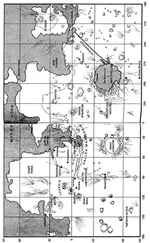Kim Robinson - Blue Mars
Здесь есть возможность читать онлайн «Kim Robinson - Blue Mars» — ознакомительный отрывок электронной книги совершенно бесплатно, а после прочтения отрывка купить полную версию. В некоторых случаях можно слушать аудио, скачать через торрент в формате fb2 и присутствует краткое содержание. Год выпуска: 1996, ISBN: 1996, Издательство: Spectra/Bantam Dell/Random House, Жанр: Космическая фантастика, на английском языке. Описание произведения, (предисловие) а так же отзывы посетителей доступны на портале библиотеки ЛибКат.
- Название:Blue Mars
- Автор:
- Издательство:Spectra/Bantam Dell/Random House
- Жанр:
- Год:1996
- ISBN:0-553-10144-7
- Рейтинг книги:3 / 5. Голосов: 1
-
Избранное:Добавить в избранное
- Отзывы:
-
Ваша оценка:
- 60
- 1
- 2
- 3
- 4
- 5
Blue Mars: краткое содержание, описание и аннотация
Предлагаем к чтению аннотацию, описание, краткое содержание или предисловие (зависит от того, что написал сам автор книги «Blue Mars»). Если вы не нашли необходимую информацию о книге — напишите в комментариях, мы постараемся отыскать её.
Green Mars
The Martian Chronicles
Dune
Piblishers Weekly st
Blue Mars — читать онлайн ознакомительный отрывок
Ниже представлен текст книги, разбитый по страницам. Система сохранения места последней прочитанной страницы, позволяет с удобством читать онлайн бесплатно книгу «Blue Mars», без необходимости каждый раз заново искать на чём Вы остановились. Поставьте закладку, и сможете в любой момент перейти на страницу, на которой закончили чтение.
Интервал:
Закладка:
“And you me. When Maya was yelling at me, after Frank died.”
“Yes,” she said, thinking back. Such power of recall they had in these amazing hours! That car had been a crucible, they had all metamorphosed in it, in their own ways. “I suppose I did. It wasn’t fair, you were just trying to help her. And that look on your face…”
They stood there, looking back at the scattering of low structures that was Underbill.
“And here we are,” Sax said finally.
“Yes. Here we are.”
Awkward instant. Another awkward instant. This was life with the other: one awkward instant after the next. He would have to get used to it, somehow. He stepped back. He reached out and held her hand, squeezed it hard. Then let go. She wanted to walk out past Nadia’s arcade, she said, into the untouched wilderness west of Underbill. She was experiencing a rush of memory too strong to concentrate on the present. She needed to walk.
He understood. Off she went, with a wave. With a wave! And there was Coyote, over there near the salt pyramids so brilliant in the afternoon light. Feeling Mars’s gravity for the first time in decades, Sax hopped over to the little man. The only one of the First Hundred’s men who had been shorter than Sax. His brother in arms.
Stumbling here and there through his life, step-by-step shocked elsewhere, it was actually quite difficult to focus on Coyote’s asymmetrical face, faceted like Deimos — but there it was, most vibrantly there, pulsing it seemed with all its past shapes as well. At least Desmond had more or less resembled himself throughout. God knew what Sax looked like to the others, or what he would see if he looked in a mirror — the idea was dizzying, it might even be interesting to test it, look in a mirror while remembering something from his youth, the view might distort. Desmond, a Toba-gonian of Indian descent, now saying something difficult to comprehend, something about rapture of the deeps, unclear if he was referring to the memory drug or to some nautical incident from his youth. Sax wanted so much to tell him that Hiroko was alive, but just as the words were on the tip of his tongue, he stopped himself. Desmond looked so happy at this moment; and he would not believe Sax. So it would only upset him. Knowledge by experience is not always translatable into discursive knowledge, which was a shame, but there it was. Desmond would not believe him because he had not felt that hand on his wrist. And why should he, after all?
They walked out toward Chernobyl, talking about Arkady and Spencer. “We’re getting old,” Sax said.
Desmond hooted. He still had a most alarming laugh — infectious, however, and Sax laughed too. “Getting old? Getting old?”
The sight of their little Rickover put them into paroxysms. Though it was pathetic as well, and brave, and stupid, and clever. Their limbic systems were overloaded still, Sax noted, jangling with all the emotions at once. All his past was coming clearer and clearer, in a kind of simultaneous overlay of sequences, each event with its unique emotional charge, now firing all at once: so full, so full. Perhaps fuller than the, the what — the mind? the soul? — fuller than it was capable of being. Overflowing, yes, that was the way it felt. “Desmond, I’m overflowing.”
Desmond only laughed harder.
His life had exceeded his capacity to feel it all at once. Except what was this, then, this feeling? A limbic hum, the roaring hum of the wind in conifers high in the mountains, lying in a sleeping bag at night in the Rockies, with the wind thrumming through the pine needles… Very interesting. Possibly an effect of the drug, which would pass, although he was hoping that there were effects of the drug that would last, and who could say if this aspect might not as well, as an integral part of the whole? Thus: if you can remember your past, and it is very long, then you will necessarily feel very full, full of experiences and emotions, perhaps to the point where it might not be easy to feel much more. Wasn’t that possible? Or perhaps everything would feel more intensely than was appropriate; perhaps he had inadvertently turned them all into horribly sentimental people, stricken with grief if they stepped on an ant, weeping with joy at the sight of sunrise, etc. That would be unfortunate. Enough was enough, or more than enough. In fact Sax had always believed that the amplitude of emotional response exhibited in the people around him could be turned down a fair bit with no very .great loss to humanity. Of course it wouldn’t work to try consciously to damp one’s emotions, that was repression, sublimation, with a resulting overpressure elsewhere. Curious how useful Freud’s steam-engine model of the mind remained, compression, venting, the entire apparatus, as if the brain had been designed by James Watt. But reductive models were useful, they were at the heart of science. And he had needed to blow off steam for a long time.
So he and Desmond walked around Chernobyl, throwing rocks at it, laughing, talking in a halting rush and flow, not so much a conversation as a simultaneous transmission, as they were both absorbed by their own thoughts. Thus very dislocated talk, but companionable nevertheless, and reassuring to hear someone else sounding so confused. And altogether a great pleasure to feel so close to this man, so different from him in so many ways, and yet now babbling together with him about school, the snowscapes of the southern polar region, the parks in the Ares; and they were so similar anyway.
“We all go through the same things.”
“It’s true! It’s true!”
Curious that this fact didn’t affect people’s behavior more.
Eventually they wandered back to the trailer park, slowing down as they passed through it, held by ever-thickening cobwebs of past association. It was near sunset. In the barrel vaults people were milling around, working on dinner. Most had been too distracted to eat during the day, and the drug appeared to be a mild appetite suppressant; but now people were famished. Maya had been cooking a big pot of stew, chopping and peeling potatoes and throwing them in. Borscht? Bouillabaisse? She had had the forethought to start a breadmaker in the morning, and now the yeasty smell filled the warm air of the barrel vaults.
They congregated in the large double vault at the southwest corner, the room where Sax and Ann had had their famous debate at the beginning of the formal terraforming effort. Hopefully this would not occur to Ann when she came in. Except that a videotape of the debate was playing on a small screen in the corner. Oh well. She would arrive soon after dark, in her old way; this constancy was a pleasure to all of them. It made it possible in some sense to say Here we are — the others are away tonight — otherwise everything is the same. An ordinary night in Underbill. Talk about work, the various sites — food — the old familiar faces. As if Arkady or John or Tatiana might walk in any second, just as Ann was now, right on time, stomping her feet to warm them, ignoring the others — just as always.
But she came and sat beside him. Ate her meal (a Provencal stew that Michel used to make) beside him. In her customary silence. Still, people stared. Nadia watched them with tears in her eyes. Permanent sentimentality: it could be a problem.
Later, under the clatter of dishes and voices, everyone seemingly talking at once — and sometimes it seemed possible also to understand everyone all at once, even while speaking — under that noise, Ann leaned into him and said:
“Where are you going after this?”
“Well,” he said, suddenly nervous again, “some Da Vinci colleagues invited me to, to, to — to sail. To try out a new boat they’ve designed for me, for my, my sailing trips. A sailboat. On Chryse — on Chryse Gulf.”
Читать дальшеИнтервал:
Закладка:
Похожие книги на «Blue Mars»
Представляем Вашему вниманию похожие книги на «Blue Mars» списком для выбора. Мы отобрали схожую по названию и смыслу литературу в надежде предоставить читателям больше вариантов отыскать новые, интересные, ещё непрочитанные произведения.
Обсуждение, отзывы о книге «Blue Mars» и просто собственные мнения читателей. Оставьте ваши комментарии, напишите, что Вы думаете о произведении, его смысле или главных героях. Укажите что конкретно понравилось, а что нет, и почему Вы так считаете.












